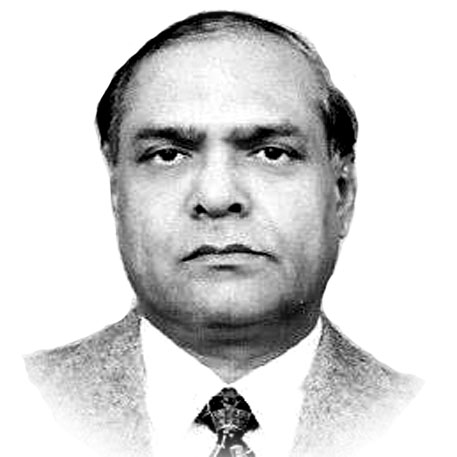Rashid A Mughal
THERE is no doubt that the American economy,in terms of its production, consumption, size, imports, volume and turnover is the biggest economy of the world. It is also an established fact that America is the largest consumer of the goods, produced in the rest of the world. If American economy slows, it sends shivers to the rest of the world. A little economic jolt in America has its impact even in the farthest continent of Africa, Asia and Europe and of course next door neighbours Canada and South America. It makes Japan the economic Juggernaut of the east and No. 2 economic power of Asia; pass sleepless nights and sends a shock wave to the rest of the world. Its chilly winds affect South America and Caribbean much alike Australia, Malaysia and Singapore. If “Uncle Sam” is not well, so are others on this globe too.
Its global influence is obvious from the fact that any slow down in the American economy slows the wheels of the industry in rest of the world and makes the entire financial markets of the world panicky and jittery. This fact is acknowledged not only by its friends and allies but also by its foes and enemies alike. All of them pray for the good health of the American economy as it is not only in American interest but in their own interest also.The history of the American economy taking the lead over rest of the economies of the world is not a thing of yesterday. Ever since the end of the First World War in 1917 the political influence of America increased manifold. After the World War-II its dominant role in decision making even on the economic and political issues in Europe, Asia, Africa and rest of the world was not only overwhelming but is considered vital. This fact became obvious when America not only became a very important member of NATO but also headed it.
American General, who was the Supreme Commander of the Allied Forces in the World War-II, General Eisenhower, became the first head of NATO. Marshal plan, floated by America became the guideline for the improvement of the shattered economies of Europe as a result of devastation of the Second World War. Likewise the ‘New deal’ and the ‘Fair deal’ put forward by America become the basic economic doctrine for the betterment of the economies of the world. The setting-up of IMF and World Bank as a result of Bretton Woods Conference was also a step in the same direction. Since then onwards America has become the largest and major economic player of the world. Its open door policy allured investors and fortune seekers alike and they all flocked to the most liberal and “emigration friendly land”- the land of opportunity.
However, in the aftermath of September 11, the traditional “open door policy” of America has changed. Liberalism is now substituted by nationalism. For the rest of the world it is the “war against terrorism” but precisely it is the self-seeking interest of United States. These two factors now seem to be the basic core and fundamentals of the formulation of American economic policies. Backed by US administration and big corporations, America is now seeking refuge in economic nationalism for its survival and growth. Globalization and free trade policies of the world’s largest free economy are now thing of the past. The going is increasingly difficult because the American protectionism is on the rise. The latest example of this protectionism is the imposition of 30 per cent duty on steel imports, mainly from Europe and Asia, evoking strong protests from its allies and coalition partners in its ‘war against terrorism ‘ and not reducing the prices of life savings drugs as required by WTO.
Global environment for bilateral assistance is also not very bright. Though richest country in the world, USA has been least generous giving only about 10 billion dollars in development assistance per annum, not even half of European Union total. The global impact of US down turn, therefore, raises the need for collective decisions on national and global level. According to United Nations “the global economy slowdown, as expected, has pushed millions into poverty making it imperative that Asia and Pacific countries remain committed to social and economic reforms”.
According to a mid-term economic report by United Nations Economic and Social Commissions for Asia and Pacific, slump in the global downturn in the world economies is affecting Asian countries with high dependence on export to the US, which includes Pakistan as well, in the face of poor response from US to its request for duty free and increased imports and textile quota. The slowdown of the American economy affected the industrialised and developed countries and poor countries of the world, alike. Japan, which has been the number two economy of the world after US for years, slumped in to worst recession in a decade as unemployment rose and consumer demand remained subdued
The United States will continue to lead the global recovery but without significant momentum. Undoubtedly the American economy is the driving engine of the world. If it slows down the rest of the economies of the world slow down with it and many have to take bitter prescription of IMF and World Bank. They can neither say “Adios” to such prescriptions nor can they sing “Au-revoir”. They have to implement those policies whether they like it or not. The latest example in this context is that of Greece, Italy and Venezuela. Being a stable and a solid economy, USA can withstand the tremors and shocks even if they are sudden and long lasting. But the same is not the case with some of the nascent and unstable economies of the world many of which are politically shaky too.
— The writer is former DG (Emigration) and consultant ILO, IOM.










